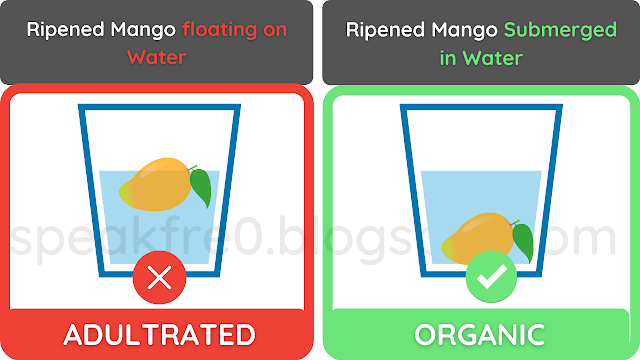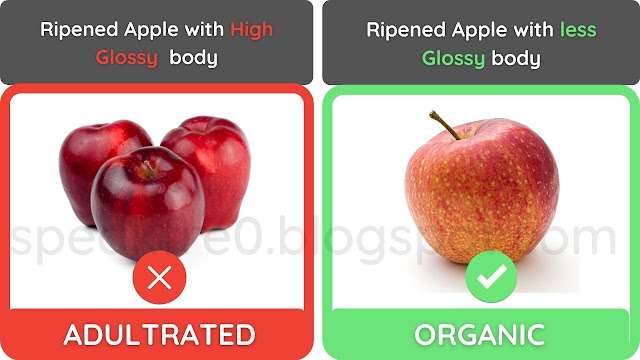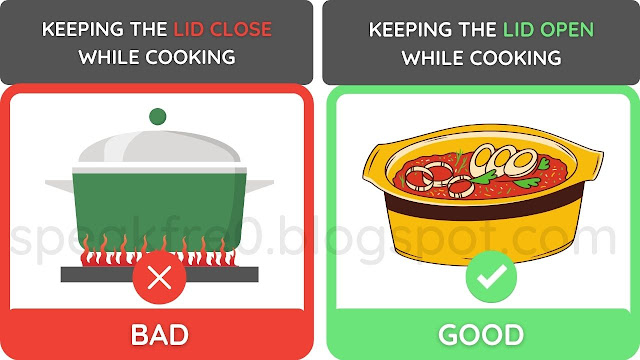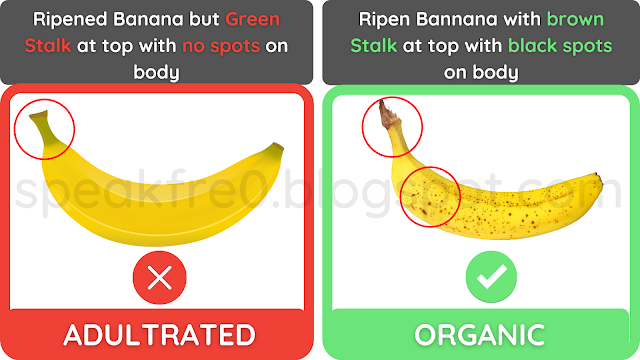Fruits and Vegetables are among the healthiest foods on the planet. They come with vitamins, minerals, and PESTICIDES. Unfortunately, that's the harsh reality.
So, To find out what really is going on at the grassroots level. I went to different local vegetable and food markets and meeting with a few Vendors and Farmers. I found out almost 99% of the crops are treated with chemical pesticides. The residue of these pesticides is present on the fruits and vegetables even after when you buy them at the grocery store.
The most shocking part is that, even after washing these fruits and vegetables for continuously 15 seconds in running tap water. It does not remove the chemical residue of those pesticides. This is a serious problem of the day.
So for that, I am sharing with you the best natural and the most economical solution to resolve this issue.
From the past decade, there has been a tremendous increase in the use of chemical pesticides to meet the needs of an ever-growing population. Almost every crop today is treated with chemical pesticides. And Eating these fruits and vegetables without properly removing the pesticide residue may lead to food poisoning, diarrhea, hormonal issues, skin and hair problems, and even long-term deadly diseases of the brain, kidney, lung, and cancer.
Now, before I come to the solution. let me just quickly share with you what and how this is done.
So basically there are 3 types of chemical agents used on fruits and vegetables to bring out what you see at the grocery store.
1. The ripening agents.
Fruits like bananas and mangos are treated with ripening agents like Calcium Carbide. Obviously, this is done so that fruits and vegetables reach the market before their season and fetch more profit. The problem with industrial calcium carbide is that it contains heavy metals like lead and arsenic, which are dangerous for the human body.
One method to find out if the fruits are treated with Calcium Carbide is to Dropping ripened fruit in a bucket of water, if the fruit float's on the water. They are adultrated. And If they drop on bottom, its Good to eat.
Another method to find out if the fruits are treated with Calcium Carbide is to use matchstick test. In this you take a match stick and bring it near the Mango which is ripened using calcium carbide. It will catch a fire or give sparkles traces on Fruits surface.
CAUTION : Do not attempt this test on the whole Box of fruit. Because the usage of calcium carbide releases a good amount of acetylene gas, which can lead to an explosion. So be careful while lifting the match stick test near Mango with calcium carbide.
2. Coating agents like Wax and DPA.
This is used mostly on fruits like apples, grapes, and almost every exotic fruit, which travels the seven seas to reach your toe step. The purpose of doing this is to preserve the moisture and the consistency of those fruits while transportation and cold storage. So that they look fresh on the shelf. You may have noticed a white powder sprinkled mostly on red and black Grapes. It is a chemical agent to prevent the grapes from getting soggy.
Wax is a petroleum product, while DPA reacts with nitrogen in the air to form nitrosamine which is a suspected carcinogen.
The solution to these two problems is very obvious.
- Never eat fruits and vegetables which are not in season
- Try to stay away from all the foreign exotic fruits and vegetables, and switch to local produce. This way, not only you will save yourself from these chemicals. But also the foods you will buy will be cheaper, and easily absorbed by your body. And don't forget, you will be helping the local farmers and also the economy.
3. Pesticides.
The Chemical agents worst of all are Pesticides. There are Systemic pesticides that are put in the bottom of the tree, nearer to the roots. So that they are absorbed by the plant, and it will be in the leaves, stems, fruits, and flowers for about 10 to 15 weeks.
Then there are Contact pesticides which are sprayed on the surface of the plant fruits and vegetables. These are the main culprits, as the residue of these pesticides remains on the fruits and vegetables even after you bring them to your home.
So, How can get rid of the Pesticides?
1. Buy Organic Food.
Now the most obvious solution is to buy organic food. Although it's not that organic foods are not treated with pesticides. It's just that they use safer alternatives. However, considering the soaring prices of organic foods. It might not be a practical solution for many of us.
2. Washing Food using Baking soda.
Baking Soda that is sodium bicarbonate known for its alkalizing nature helps remove almost 98% of the pesticide residue from fruits and vegetables. This is an easy yet very effective way of removing pesticides from fruits and vegetables. This has been also proven to remove almost 98% of pesticide residue. All you need to do is,
- Put the contaminated fruits and vegetables in a container and pour enough water into it.
- Now put one tablespoon of baking soda in it. Baking soda is easily available in grocery shops. Click here to buy it from Amazon.
- Now leave the container for about 15 to 20 minutes. And wash them thoroughly with running tap water.
If you want you can use Vinegar instead of Baking Soda. Both are effective at removing pesticides. So next time and every time you buy fruits, and vegetables make them go through this process.
3. Remove the first layer of foods like cabbage and onion before washing.
Whenever you want to wash something like cabbage or onions always make it a habit to peel off the first layer. Then wash them in a baking soda solution.
If a fruit or vegetable has skin which you won't be using. Even then, do not shy away from washing it with baking soda. For example, when you cut an unwashed Watermelon some part of the pesticide residue from the surface goes inside.
4. Keep the lid open while cooking.
While cooking the vegetables it is recommended to keep the lid open. The agricultural scientists say that with steam pesticides inside and outside the body of vegetables move upwards.
Well, it can't be said that using all these practices, we can make our fruits and vegetables 100% free of pesticides. But there is no doubt about the fact that these are highly effective methods to reduce the effect of pesticides and other chemical agents to as much as possible. And frankly, this is the best we can do as a smart consumer.
5. Avoid fruits and vegetables which are not in season.
After talking with local vendors and farmers, I came to know that there are certain crops and vegetables which are heavily treated with chemicals.
Fruits such as the mangoes, while its season is approaching, be ready for chemically ripen mangoes in the beginning.
Bananas are extensively treated with calcium carbide to meet the demands. One easy way to differentiate is that naturally ripened bananas have black or brown stalk. Whereas chemically ripen bananas have green stalks.
Tomatoes are also very heavily treated with pesticides. Other heavily treated fruits and vegetables include grapes, papaya, brinjal, etc. Then I also got to know that there are vegetables that require the least amount of pesticides. These include mostly the ones which are grown underground like onions, potatoes, sweet potatoes, carrots, reddish, etc. Even the green leafy vegetables do not require a lot of pesticides. So you have another reason to eat them more often.
This was just for your awareness. Although I would still highly recommend you wash all the fruits and vegetables that you buy in a baking soda solution. Even a small residue of pesticide our body finds it very difficult to get rid of and it gets deposited in the adipose tissue.
So Let' Summarize the things we discussed to Stay safe from Food Adultration,
1. Avoid fruits and vegetables which are not in season.
2. Try to stay away from the foreign exotic foods and switch to local produce always.
3. Some foods are heavily treated while others are not. Choose wisely buy organic foods whenever possible.
4. Wash the fruits and vegetables with baking soda solution.
5. Remove the first layer of foods like cabbage and onion before washing.
6. Keeping the lid open while cooking helps minimize the effect of pesticides.
As a smart consumers let's be aware and do as best as we can like switching to organic food products is a better option.







0 Comments